- Home
- H A CULLEY
The Strategos Page 4
The Strategos Read online
Page 4
‘You tell him, Orestes. He’s right. If I explain it would sound like a boast.’
‘Parmenion and I were phylearchs in command of hoplites at the battle at the pass which prevented the Athenians from capturing the mines. When all our senior officers were killed, Parmenion took command of the tagma and attacked the flank of the chiliarchy to our front. Our success was instrumental in panicking the Athenians and starting the rout. Parmenion was promoted to lochagos for his bravery and initiative on the battlefield and given command of a lochus of light infantry. Once again, he was instrumental in defeating a tagma of hoplites escorting a supply column which ultimately led to,’ here his eyes flickered towards the strategos, who regarded him impassively, before continuing, ‘the lifting of the siege. On the other hand, I am just a phylearch of hoplites, but I’m also Parmenion’s friend.’
Both officers looked at Parmenion, who confirmed that what Orestes had said was essential true.
‘I see. Well, we are looking for cavalry, not hoplites or skirmishers.’ After a pause Zoilus added. ‘It’s a pity, I could use men like you, Parmenion, despite the fact that we used to be enemies.’
‘I was only a hoplite because my family was not well enough connected for me to join the cavalry. We trained for four years as ephebes to be both infantry and cavalry and I would be happy to recruit a lochus of cavalry, if that’s what you want. Orestes is also a good horseman and underwent the same training as I did.’
‘I need a hipparchia of mercenary cavalry. If you think that you can recruit enough cavalrymen and horses I’ll make you their hipparchos. I’ll give you four months.’
It was evident from the cynical manner that Alcetas said this that he thought that were more likely to cross the River Styx and return safely than they were to recruit a hipparchia. As that would require them to find five hundred mounted mercenaries, Orestes thought that he was right to be skeptical. Parmenion remained confident, however, and stood up, saluted, and said that he would return with his men by the end of the year.
-o0o-
He and Orestes, accompanied by their two skeuphorii, rode back to Amphipolis. Both of them believed that some of their friends from the academy might prefer a life of soldiering to the more sedate life that awaited them, now that Athens seemed to have lost interest in recovering their former colony.
They started by sending messages to Demetrius and Kionos asking them to meet them at the tavern where they were staying. Both Parmenion and his friend had lived in estates some distance from the city and it was more convenient, if more expensive, to stay in the city. Alcetas had given them a large pouch of silver tetradrachms, each worth four drachmas, but that was intended to pay each recruit a donative for signing on in addition to meeting their expenses. He had been at pains to point out that it was contingent on their return with five hundred mercenaries. If they thought of making a fool of him and disappearing with it, he would find them and kill them.
Both of their friends seemed delighted to see them again, though Kionos seemed a little subdued. It wasn’t until after the third flagon of wine and a great deal of reminiscing that Parmenion told them the reason for their return to Amphipolis. Demetrius, who hated being apprenticed to his goldsmith uncle, was immediately keen to sign up but Kionos was more cautious. His father was a wealthy wine merchant and he had sent Kionos to assist the manager of one of his vineyards. Like the others, he wasn’t in line to inherit; they all had one or more elder brothers; but he had met a girl called Calisto that he was infatuated with. She was sixteen and was the daughter of the owner of the estate next to the vineyard. They had met when they were both out riding; something they both enjoyed immensely.
The difficulty was that he was still only eighteen and far too young for it to be decent for him to be involved with a girl. The earliest age at which it was considered proper to marry was twenty five and men and girls were meant to keep apart until then. More than a few young men found an outlet for their sexual frustration by forming a romantic attachment to an ephebe, though that outlet for their libidos didn’t appeal to any of the four.
His friends had no problem with Kionos’ infatuation with a girl, in fact they applauded it. However, both his father and Calisto’s had disapproved strongly and had forbidden them to see each other. Kionos was tempted to join Parmenion’s hipparchia as a way of trying to forget Calisto, as their liaison seemed doomed. After much deliberation, he decided that he needed to see her again and sent a boy with a message asking her to meet him at the usual place the following afternoon.
Ever since her father had found out about Kionos and Calisto, she had been prohibited from riding alone and one of the grooms had to act as chaperone. It wasn’t a problem as she was a much better rider and her horse was faster, so the groom had lost her long before she reached their secret meeting place in the hills.
Calisto’s excuse that day had been to hunt small game and she had already brought down a brace of wild pheasants whilst waiting for her lover. She was surprised to see that he was accompanied by three other riders but they stopped at a small stream some distance away and Kionos came on alone.
‘Who are they,’ she asked as soon as they had embraced and exchanged a kiss.
‘Friends from when we were ephebes at the academy. That’s why I particularly wanted to see you today.’
‘Oh?’ She couldn’t understand what his friends had to do with their clandestine romance.
‘Parmenion is raising a hipparchia to fight for Macedon and he has asked me to join him and the others.’
‘Oh!’ she said again, this time with a note of despair in her voice.
‘But I said I would have to talk to you first. We can go on meeting like this, in secret, but sooner or later we’ll be caught, and then your father will carry out his threat to marry you to someone older. At least this way I’ll be away from temptation and, when I return in a few years, we can arrange to marry then.’
‘But that’s at least seven years away, and I’m not sure my father would approve of me marrying a mercenary.’
The despair in her voice had become more pronounced and Kionos felt his heart sinking. Neither said anything for a while whilst both explored possible solutions in their heads, each more implausible than the last. Suddenly Calisto’s eyes lit up.
‘I’ve got it! I’ll run away and join Parmenion’s hipparchia with you.’
He looked at her as if she had taken leave of her senses.
‘You can’t do that!’
‘Why not? I’m as good with a bow on horseback as any man I know. I could train others and then Parmenion would have a unit of horse archers, like the Scythians and the Persians.’
‘Yes, that might be useful; I’ll have to ask him. But you’re a girl. You can’t live with men.’
‘Why not. I’ll have you to protect me.’
Kionos admitted that the idea of having Calisto to share his blanket every night had great appeal and, when they eventually returned, her father would have to agree to their marriage. No-one else would want her after that. He also thought that having an ilium or two of horse archers might be useful.
Calisto was thinking along the same lines but she could see that Parmenion might have a problem with including a girl in his band. No Hellene man would approve of a female stepping outside their traditional roles of motherhood and home-making. Then she had an idea.
When Kionos heard her plan he thought that she was mad but, the more he thought about it the more he thought it might work. The two lovers spent the next ten minutes saying goodbye to each other and then Kionos rode back across the valley to where his friends were waiting. He threw the brace of pheasants to the ground as he dismounted.
‘A present from Calisto’s brother.’
‘He must be a good shot with a bow, they’ve both been struck cleanly in the chest.’
‘Yes, even more remarkable when you consider that he shot them from horseback.’
All three of his friends were dubious about such an improba
ble feat and said so.
‘Well, you’ll be able to find out for yourselves. He wants to join us and perhaps train an ilium of horse archers, if you think they could be useful, Parmenion?’
The latter considered the idea and he admitted to himself that horse archers could indeed be useful, provided he could recruit enough of them.
‘Where would they come from?’
‘Perhaps we could recruit some ephebes and train them? Others might be tempted to escape the dullness of their lives to seek adventure.’
‘I want experienced cavalrymen, not untrained boys.’ It was obvious that Parmenion was going off the idea.
‘But if you agree that horse archers would be of use, where will you find them? We’ve not got the time to journey to Scythia or Persia and to train others would be a waste of those who are already useful heavy or light cavalrymen.’ Orestes joined the argument for the first time, after carefully considering Kionos' idea.
Parmenion wandered off by himself to consider what had been proposed. He could see the advantages but he really wasn’t too keen on having a load of ephebes to look after. Furthermore, their fathers would hardly agree so they would have to run away and then their only option would be to remain as soldiers. Furthermore, he would be blamed and he could never return to Amphipolis, or anywhere else he recruited the boys from; he would probably be killed.
Finally he made his mind up. He returned to the others and told Kionos that he wanted to meet Calisto’s brother at the same spot at the same time the following day. He wasn’t promising anything but he was prepared to investigate it further.
-o0o-
The next morning the four sought out those of their friends who were at the academy with them and who they thought might be interested in joining them. Ten said they were and another forty men who could ride well were happy to join as ordinary soldiers. Parmenion now had enough leaders for each ilium, the total number he needed, but only forty men. He decided to leave that problem for another day and set out with Demetrius, Orestes and Kionos to meet Calisto’s brother. All that Kionos seemed to know about him was that he was fourteen but not yet enlisted in the academy as an ephebe, and that his name was Boethus.
Even Kionos didn’t recognise his lover. Her long brown hair had been cut like a boy’s and she had obviously bound her breasts tightly so that they didn’t show under the short chiton she wore. She wore calfskin boots and a wide leather belt with both a sword and dagger hanging from it. The quiver tied to her saddle contained her arrows and an unstrung short composite bow. She hadn’t tried to disguise her voice and so she sounded like a young boy whose voice had yet to break. Kionos had to admit that she did look like a boy, albeit a rather good looking one.
She replied to Parmenion’s questions honestly without boasting about her ability with a bow on horseback. When he asked her who had trained her she told him that their father’s head groom had been a Persian slave. He taught her to ride and later, when she saw how good he was with a bow, she had asked him to teach her. She concluded by saying that he was kind enough to say that she was now as good, if not better, than he was. The bow had been made especially for her by a Dacian who lived in Neapolis in Thrace.
When he had finished interrogating her, Parmenion invited her to demonstrate her skill. He asked Demetrius to put up a static target and suggested that she rode past at a distance of thirty yards and tried to hit it. The supposed Boethus laughed and said that was too easy. She suggested that Kionos rode past at a canter with his shield protecting his body. She would gallop in the opposite direction at a distance of fifty yards and see how many arrows she could put into his shield.
Knowing how good a horse archer Calisto was, Kionos grinned and accepted the challenge. All three of his friends were worried that Boethus would miss and either hit his horse or an exposed part of their friend’s body. They needn’t have worried. Boethus put three arrows in the centre of Kionos’ shield, all within an inch or two of each other.
Parmenion rode up to the young archer and clasped her arm, welcoming her to his hipparchia. He had decided there and then that he wanted at least fifty horse archers; more if possible. He didn’t suppose for a moment that they could all be trained to Boethus’s standard but that wouldn’t matter. With fifty, or even better, a hundred horse archers, they would be able to weaken an enemy at a distance before his cavalry closed with them. They could also give covering fire to enable the rest to withdraw if they encountered a much stronger enemy force on patrol.
Boethus was obviously too young to command an ilium so Parmenion appointed Kionos as leader of the horse archers with Boethus as his assistant. Needless to say, this suited the two lovers perfectly.
Now that he had finished recruiting in Amphipolis, Parmenion wondered where to try next. He was gradually developing a concept in his mind for his hipparchia. Initially he wanted only armoured cavalrymen but now he was working on the idea of a mixed force; half heavy cavalry, a hundred and fifty light horsemen to use as scouts and skirmishers and a hundred horse archers. This would be an ideal combination for use as the vanguard of an army on the march and for foraging during a siege. The best sources of light cavalrymen were Thrace and Dacia. He might also find some who could be trained as horse archers, so he set off for Neapolis first to order the bows he would need and, at the same time, to see how many recruits he could find.
-o0o-
When he found the two of them sharing a blanket one morning Parmenion thought that Kionos had betrayed Calisto and had taken her brother as his lover. But that didn’t seem like Kionos; he’d never shown any interest in boys. Then he realised the way that the supposed young ephebe was giggling didn’t sound a like a boy. It slowly dawned on him that he had been tricked and he didn’t know whether to be angry or amused, but his overriding concern was how his men would react to having a female warrior in their midst. It went against everything they had all been brought up to believe was proper.
By the time he discovered that Boethus and Calisto were one and the same he had already recruited seven ephebes who were training as archers. Three came as lovers of Thracian light cavalrymen and four were running away from home for a life of adventure. Another three men in their early twenties who were adept with a hunting bow had also asked to train as horse archers, so he only had over a tenth of the number he wanted. If he dismissed Calisto he would lose his trainer and his best archer by far, and she would be left destitute. Her family certainly wouldn’t take her back.
Reluctantly he decided to keep her on. He realised that she would have to continue the pretense that she was Kionos’ boy lover. Not for the first time Parmenion regretted the views that most Greeks held about the proper place that women held in such a male dominated society. Of course, most had heard tales about the Amazons and about Scythian women fighting alongside men in battle but most Greeks tended to think such tales were just myths.
Proof that this was not the case awaited them at a large Thracian town called Cypsela on the River Hebrus. A Scythian raiding party had penetrated as far as Orestia to the north before they had been defeated by a mixed force from Dacia and Thrace, an unusual combination as they were usually bitter enemies. However, this time they had been forced to put aside their petty squabbles and combine because of the damage done by the raiding party, which had been over a thousand strong.
Some fifty captives had been taken after the battle which forced the Scythians to take their plunder and retreat back to the steppes where they lived. Of these several were female warriors. As Parmenion had hoped, seven of these were horse archers. Because female warriors were greatly feared by the Thracians, no-one was willing to buy them and Parmenion got them very cheaply. Language was a problem as no-one spoke their language and at first none of them appeared to speak Greek. Then one of the women managed to convey to Parmenion that one of the boy captives spoke Greek. He looked to be about fifteen but he was more in demand as a slave and it cost Parmenion nearly half of his dwindling bag of silver tetradrachms to buy
him.
Not only were the women excellent horse archers but it turned out that the boy, whose name was Scyles, was as well. When Scyles explained to the rest what Parmenion wanted them for and that they weren’t to be slaves, they expressed their gratitude and professed undying loyalty, all of which Parmenion took with a large pinch of salt. However, their desire to join his small army seemed genuine. He was finally convinced that buying them had been a good idea when they told him that they might know where those who had escaped after the battle might be hiding.
Now that he had other female warriors, Calisto could drop the pretense that she was a boy, though there were a few Greeks in his force who obviously thought that it might be all right for Scythians but not for Greek women. There were in a minority, however, and for most Calisto had already convinced them that she had more than earned her place.
The next day Parmenion and his ever more diverse band headed north up the Hebrus and then up the River Tonzus until they reached a town near the border with Dacia. Some ten miles from the town they found a large party of a Scythians hiding in a valley high in the hills. There were just over two hundred of them: men, women and older boys. They were well armed, hungry and, being so far from home, increasingly desperate.
At first they thought that Parmenion had come to take them prisoner until he rode forward with his Scythian horse archers and Scyles explained that he came in peace. The negotiations lasted three days but in the end he had his one hundred and fifty light cavalry and a hundred horse archers. Now all he needed was another two hundred heavy cavalry.
The only place he was likely to get them in time was Thrace. The problem was that Thracians hated Scythians even more than they hated their traditional enemies, the Dacians. Getting them to serve together was going to be a challenge.

 The Wolf and the Raven
The Wolf and the Raven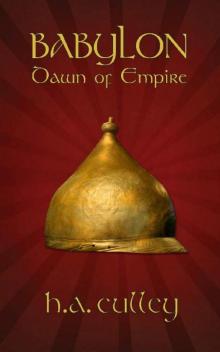 Dawn of Empire
Dawn of Empire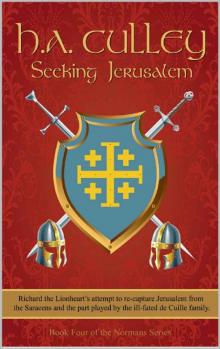 Seeking Jerusalem
Seeking Jerusalem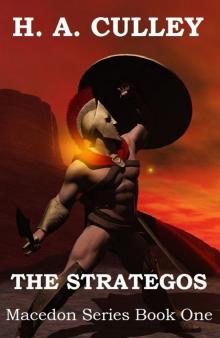 The Strategos
The Strategos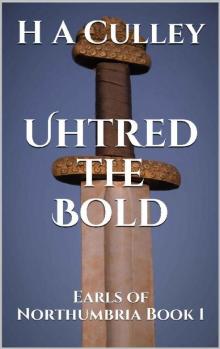 Uhtred the Bold
Uhtred the Bold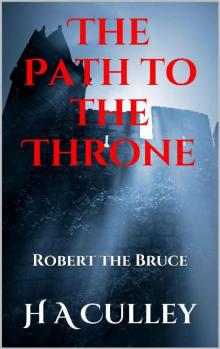 The Path to the Throne
The Path to the Throne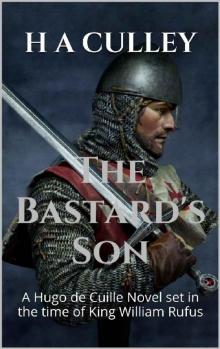 The Bastard's Son
The Bastard's Son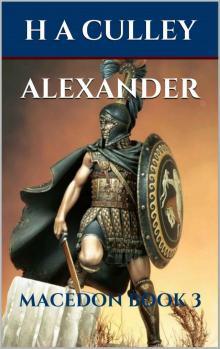 Alexander
Alexander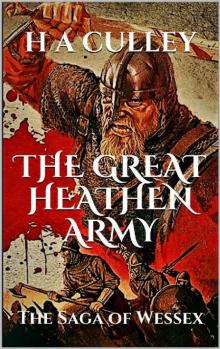 The Great Heathen Army
The Great Heathen Army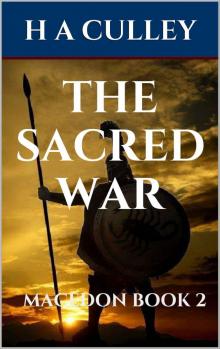 The Sacred War
The Sacred War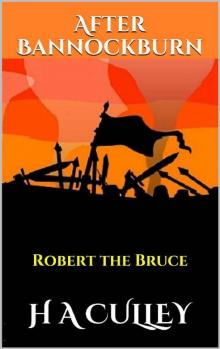 After Bannockburn
After Bannockburn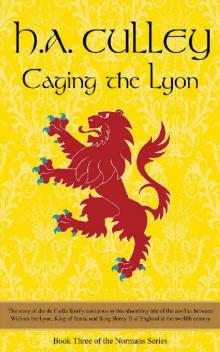 Caging the Lyon
Caging the Lyon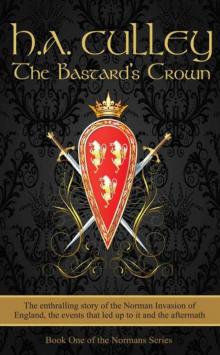 The Bastard's Crown
The Bastard's Crown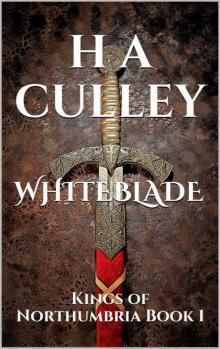 WHITEBLADE
WHITEBLADE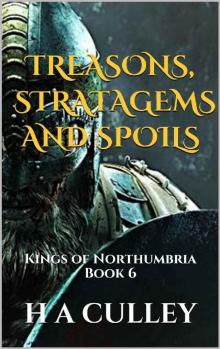 TREASONS, STRATAGEMS AND SPOILS: Kings of Northumbria Book 6
TREASONS, STRATAGEMS AND SPOILS: Kings of Northumbria Book 6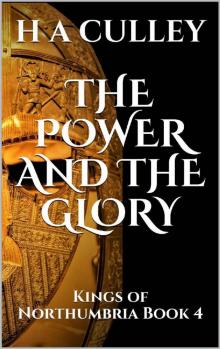 THE POWER AND THE GLORY: Kings of Northumbria Book 4
THE POWER AND THE GLORY: Kings of Northumbria Book 4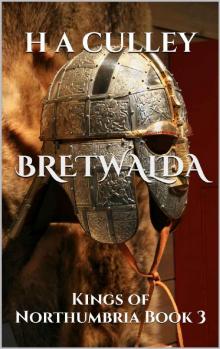 BRETWALDA: Kings of Northumbria Book 3
BRETWALDA: Kings of Northumbria Book 3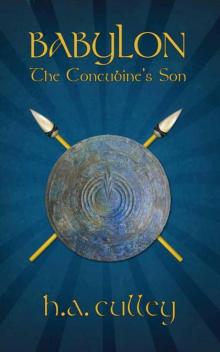 The Concubine's Son
The Concubine's Son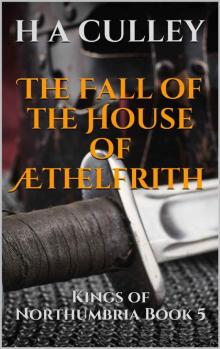 The Fall of the House of Æthelfrith: Kings of Northumbria Book 5
The Fall of the House of Æthelfrith: Kings of Northumbria Book 5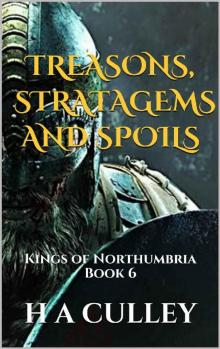 TREASONS, STRATAGEMS AND SPOILS
TREASONS, STRATAGEMS AND SPOILS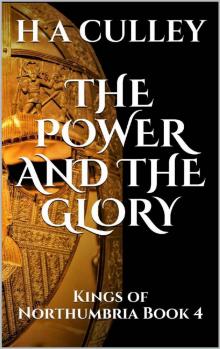 THE POWER AND THE GLORY
THE POWER AND THE GLORY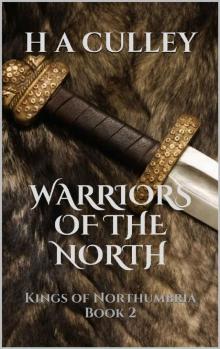 WARRIORS OF THE NORTH
WARRIORS OF THE NORTH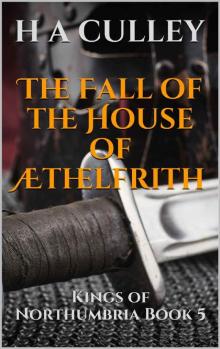 The Fall of the House of Æthelfrith
The Fall of the House of Æthelfrith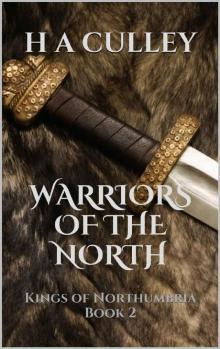 WARRIORS OF THE NORTH: Kings of Northumbria Book 2
WARRIORS OF THE NORTH: Kings of Northumbria Book 2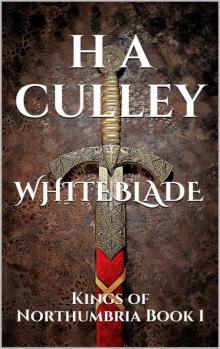 WHITEBLADE: Kings of Northumbria Book 1
WHITEBLADE: Kings of Northumbria Book 1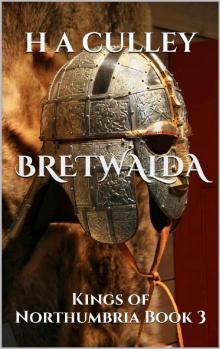 BRETWALDA
BRETWALDA